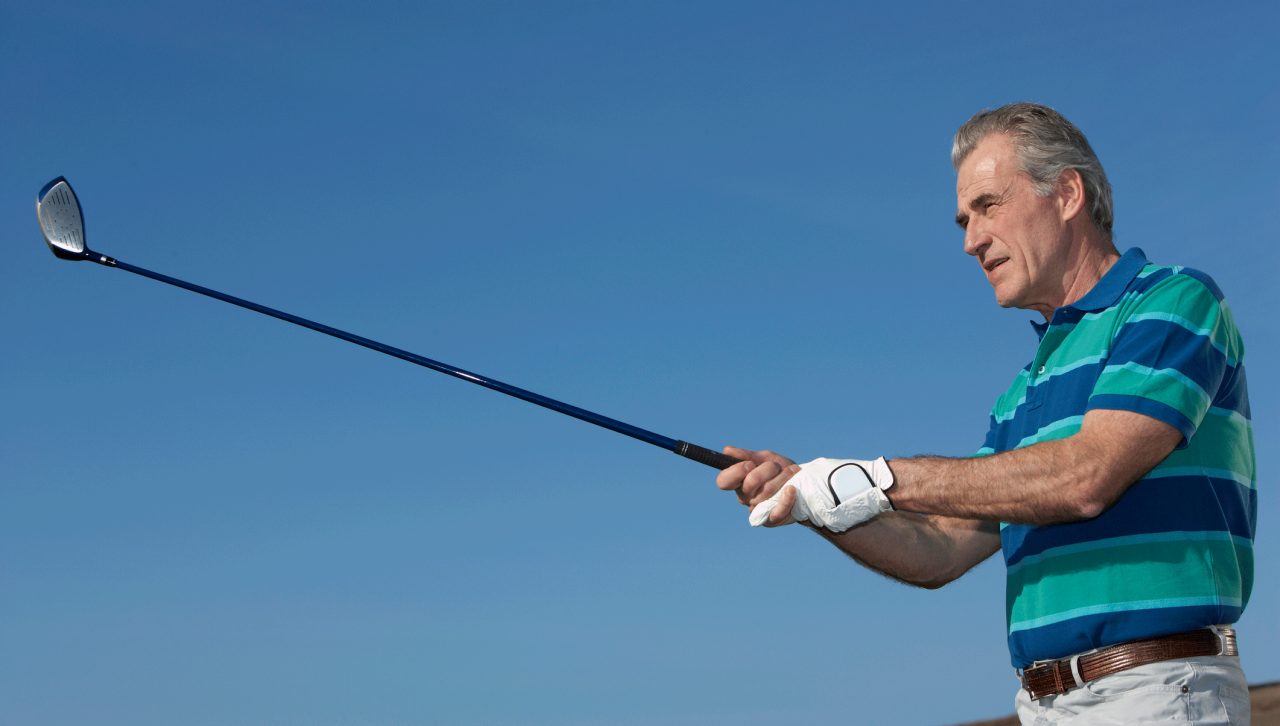Golf May Improve Parkinson’s Disease Symptoms

Parkinson’s disease raises the risk of falls due to balance problems. Medication and exercise can help — and taking a swing at golf may be especially helpful.
Over a million Americans have Parkinson's disease (PD), according to the American Parkinson Disease Association (APDA). In fact, it’s the most common neurodegenerative disease in the U.S., after Alzheimer's disease. While there’s no cure for this chronic, progressive condition, advances have been made in helping people with PD manage symptoms with medication and physical therapy.
And now there’s a new “prescription” that may benefit many people with Parkinson’s disease. It’s not a drug — it’s golf.
YOU MIGHT ALSO LIKE: What Is Parkinson's Disease?
Symptoms of Parkinson's disease include tremor, rigidity, and difficulty walking (in late stages of PD, cognitive problems may occur),the APDA points out. Along with standard medical care, certain forms of exercise have been shown to improve symptoms in many patients.
For example, the National institutes of Health (NIH) notes Tai chi is particularly beneficial for improving balance in people with PD. However, taking a swing at golf may be even better at improving balance and mobility, according to research from Massachusetts General Hospital neurologists, presented at the American Academy of Neurology’s 73rd Annual Meeting.
Why golf may be the best exercise prescription for some
“We know that people with Parkinson’s disease benefit from exercise, but not enough people with the disease get enough exercise as therapy,” said study author and Parkinson’s disease expert Anne-Marie A. Wills, MD, of Massachusetts General Hospital Boston.
Although about 10 percent of those with Parkinson’s have young-onset Parkinson’s Disease (YOPD), such as actor Michael J. Fox. PD, however, is most often diagnosed in people after age 50.
“Golf is popular — the most popular sport for people over the age of 55 — which might encourage people to try it and stick with it. We decided to compare golf to Tai chi in our study because tai chi is the gold standard for balance and preventing falls in people with Parkinson’s,” Wills said.
For their research, Wills and colleagues offered 20 people diagnosed with moderate Parkinson’s disease 10 weeks of free Tai chi or golf classes. The volunteers were randomly assigned to either practice their golf swing at a driving range with an instructor for an hour twice a week or attend group tai chi classes for the same amount of time per week. Eight people were randomly assigned to the golf group while 12 did Tai chi.
At the beginning and the end of the study, the researchers evaluated the PD patients with a test. While it sounds simple — each person was timed while getting up from a chair, walking 10 feet, and then going back to the chair and sitting down again — these activities are used to measures balance, walking ability, and the risk of falling in those with Parkinson’s disease.
The results showed a significant improvement in those in the golf group. The golfers were over a minute and a half faster on the test at the end of the study, while those who did Tai chi were a little over 30 seconds slower when the study concluded.
Bottom line? Golf may benefit people with Parkinson’s Disease
With the exception of the golfers having more sore muscles than those doing Tai chi, there was no difference between the two groups when it came to having falls or experiencing any other physical problems in their golf or Tai chi sessions.
While the findings are encouraging, Wills points out the study was small and more research with many more PD patients over a longer period of time is needed.
For now, however, it appears golf not only benefit people with Parkinson’s disease but also be an activity many will stick with over time. Wills and her research team found overall satisfaction with either Tai chi or golf was about the same in both groups of research subjects — but 86 percent of golfers said they were “definitely” likely to continue with golf, compared to 33 percent of the Tai chi participants.
“Our finding that golfers were much more likely to continue with their sport is exciting because it doesn’t matter how beneficial an exercise is on paper if people don’t actually do it,” Wills emphasized.
Her advice for people with Parkinson’s disease: “If swinging a golf club is more appealing than practicing Tai chi, by all means, go to a driving range and hit balls for an hour instead!”
Updated:
May 28, 2021
Reviewed By:
Janet O’Dell, RN